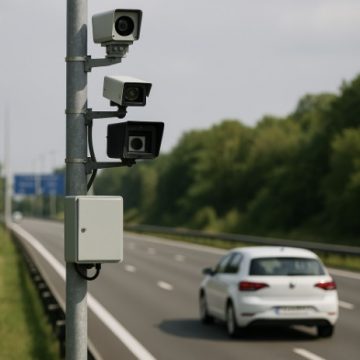Legal Loophole in Flemish Traffic Legislation: A Free Pass for Company Car Drivers?
In Flanders, a legal loophole in traffic legislation allows some company car drivers to evade administrative fines. This situation, stemming from a strict interpretation of traffic offense regulations, raises questions about the equal treatment of motorists.
1. A Loophole Exploited Since April 2024
Since April 2024, Flemish municipalities have been allowed to impose administrative fines for speeding violations committed within their territory. However, federal road traffic law states that these fines can only be addressed to natural persons and not to legal entities.
Most company cars are registered under the employer’s name or a leasing company, both of which are legal entities. As a result, when the police are unable to identify the driver responsible for the offense, no sanction can be applied.
2. A Paradoxical and Hard-to-Enforce Situation
The issue doesn’t stop there. If the employer or leasing company fails to provide the driver’s identity within 15 days, there is virtually no effective penalty. In practice, the public prosecutor’s office rarely prosecutes such omissions, leading to a legal gray area and a lack of strict enforcement.
Additionally, the procedure itself is complex: the police have 14 days to submit their report to municipal authorities, who then must wait for a response from the companies involved. This administrative delay further complicates the enforcement of these infractions.
3. An Inequality Between Private and Professional Drivers
This legal gap creates an inequality between private vehicle owners and company car drivers. While the former are directly fined for speeding violations, the latter can avoid penalties simply because their identity is not officially recorded.
In practice, this means that similar offenses may be treated unequally, undermining both deterrence and fairness in the road traffic system.
4. What Solutions to Close This Loophole?
Given this situation, several legal experts and traffic law observers believe that the legislation needs to be adjusted. Several potential solutions have been proposed:
- Holding the employer or leasing company jointly liable for the offense if they fail to provide the driver’s identity within the given timeframe.
- Introducing stricter penalties for companies that do not provide the required information.
- Amending the law to allow authorities to impose administrative fines on legal entities or to transfer responsibility to the company when the driver cannot be identified.
Conclusion
This legal loophole highlights a structural problem in the enforcement of traffic fines in Belgium. Without legislative modifications, company car drivers in Flanders will continue to escape certain fines.
Are you facing a legal issue related to traffic law?
Contact me for personalized legal assistance.




